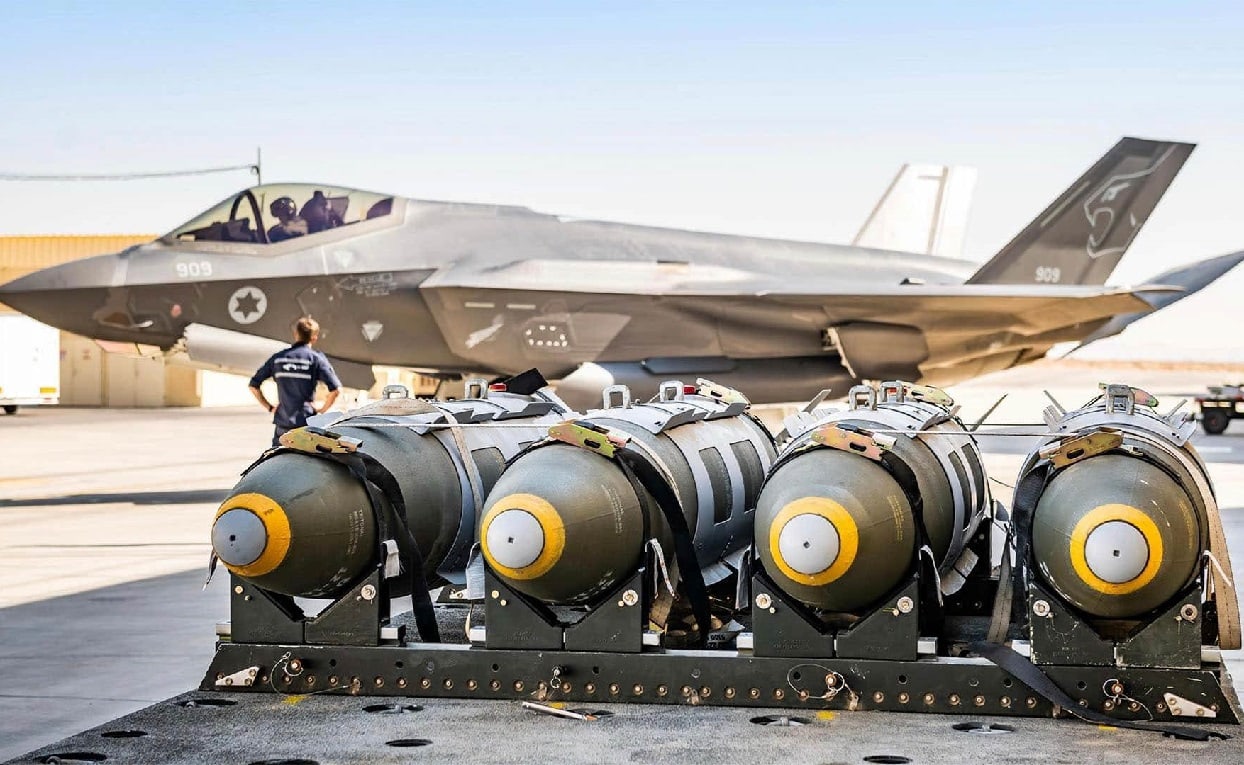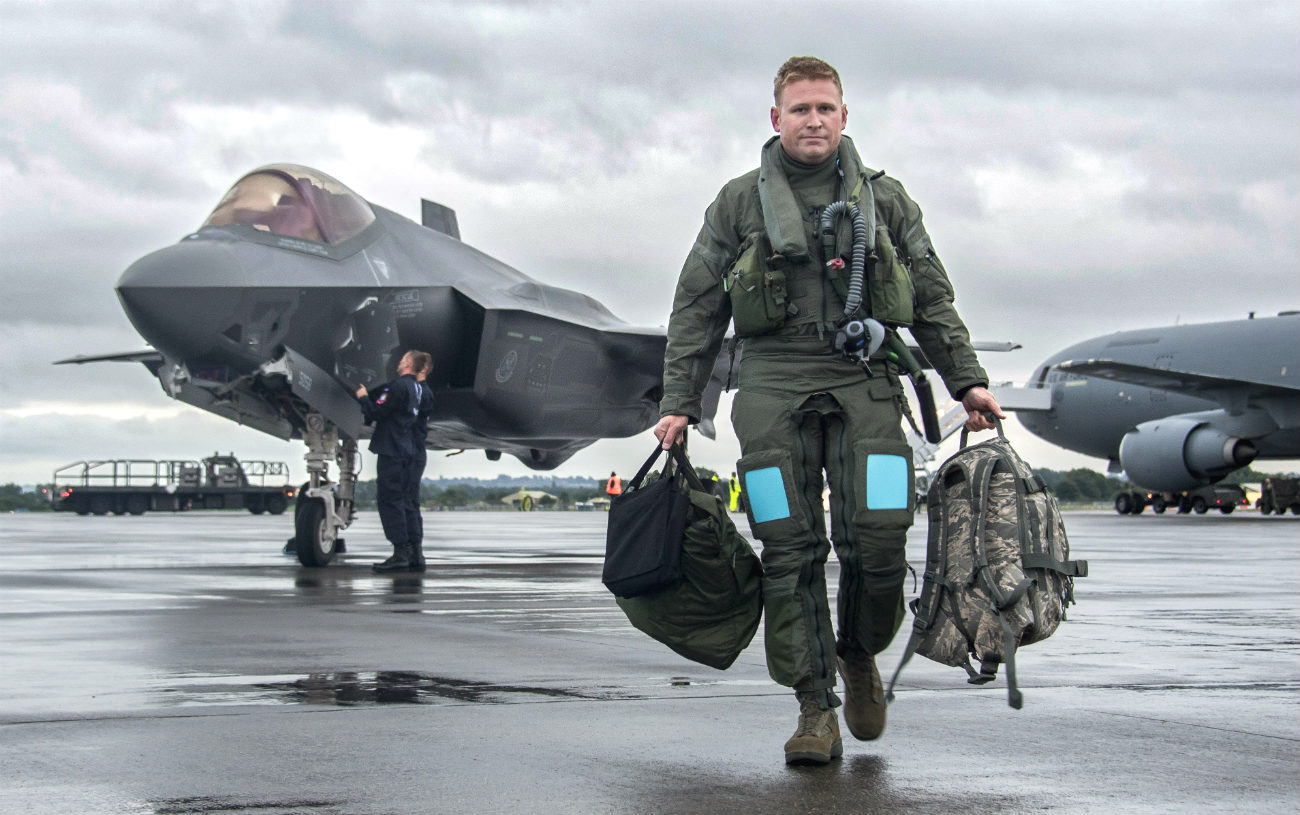Why is the US Reluctant to Sell F-35 to its Arab Allies in the Gulf?
Until now, hundreds of F-35 fighter jets have been sold by the United States to its allies around the world, but not a single one of these advanced aircraft has been sold to the wealthy Gulf Arab countries so far, which are strong allies of Washington.
(DEFENCE SECURITY ASIA) — Although wealthy, the air forces of Gulf Arab countries, especially Saudi Arabia, the United Arab Emirates (UAE), and Qatar, are still not equipped with fifth-generation fighter aircraft like the F-35.
It’s not that these Arab nations don’t want to acquire them, but their attempts to obtain F-35 fighter jets have hit roadblocks one after another, even though all three Gulf Arab countries are strong allies of Washington in the region.
Saudi Arabia, the UAE, and Qatar are Gulf countries that use advanced fighter jets in the market, including the American-made F-15 and F-16.
However, their efforts to acquire the F-35 have been unsuccessful so far. Why?
Up to now, hundreds of F-35 fighter jets have been sold by the United States to its allies around the world, but not a single one of these advanced aircraft has been sold to these wealthy Gulf Arab countries.

For the United States, it is willing to sell the F-35 to these countries, but the sales agreements come with very strict conditions, making it nearly impossible for any sales of Lockheed Martin’s fifth-generation aircraft.
Conditions such as human rights records, politics, and more have been imposed by Washington on these Gulf Arab countries if they want to own F-35 fighter jets.
In 2021, the UAE agreed to purchase 50 F-35 fighter jets and 18 MQ-9 Reaper drones from the United States, during Donald Trump’s administration, in an estimated $23 billion deal.
However, the agreement only received a “green light” from Washington after the UAE established diplomatic relations with Israel under the Abraham Accords initiative.
However, the agreement fell apart when the UAE refused to follow the United States’ lead in ending its cooperation with the Chinese 5G technology giant, Huawei.

The United States was concerned that China might use Huawei’s 5G technology in the UAE to spy on the capabilities of the F-35 fighter jets.
Although Saudi Arabia has not established any diplomatic relations with Israel so far, reports citing sources suggest that the Trump administration wanted Riyadh to establish official relations with Tel Aviv before granting other “concessions.”
One of these concessions was that Israel would not object if Washington wanted to sell F-35s to Saudi Arabia.
It is clear that for Saudi Arabia and Qatar to be able to buy F-35 aircraft, both Gulf Arab countries would need to establish diplomatic relations with Israel first.
In reality, Israel holds the “key” to whether these Gulf Arab countries can have F-35s or not.
Numerous obstacles to acquiring fifth-generation fighter aircraft have led Gulf Arab countries to seek alternative solutions.

However, the “alternative route” pursued by Gulf Arab countries does not promise any positive developments.
Besides the F-35, fifth-generation fighter aircraft are currently only operated by two countries, China and Russia.
China does not sell its fifth-generation J-20 “Mighty Dragon” to other nations, while Russia is still facing challenges in producing enough Su-57s for its air force.
With tight economic sanctions imposed on Russia due to its conflict with Ukraine, the production issues of the Su-57 are expected to persist, at least as long as the conflict in Eastern Europe continues.
The CAATSA (Countering America’s Adversaries Through Sanctions Act) threat also plays a role in reducing the interest of Gulf Arab countries in acquiring Russian fighter jets.
It appears that the quest of Saudi Arabia, the UAE, and Qatar to acquire fifth-generation fighter aircraft will continue for some time. – DSA

DEFENCE SECURITY ASIA APPS
To advertise contact admin: haikalhamas73@gmail.com


Comments are closed.